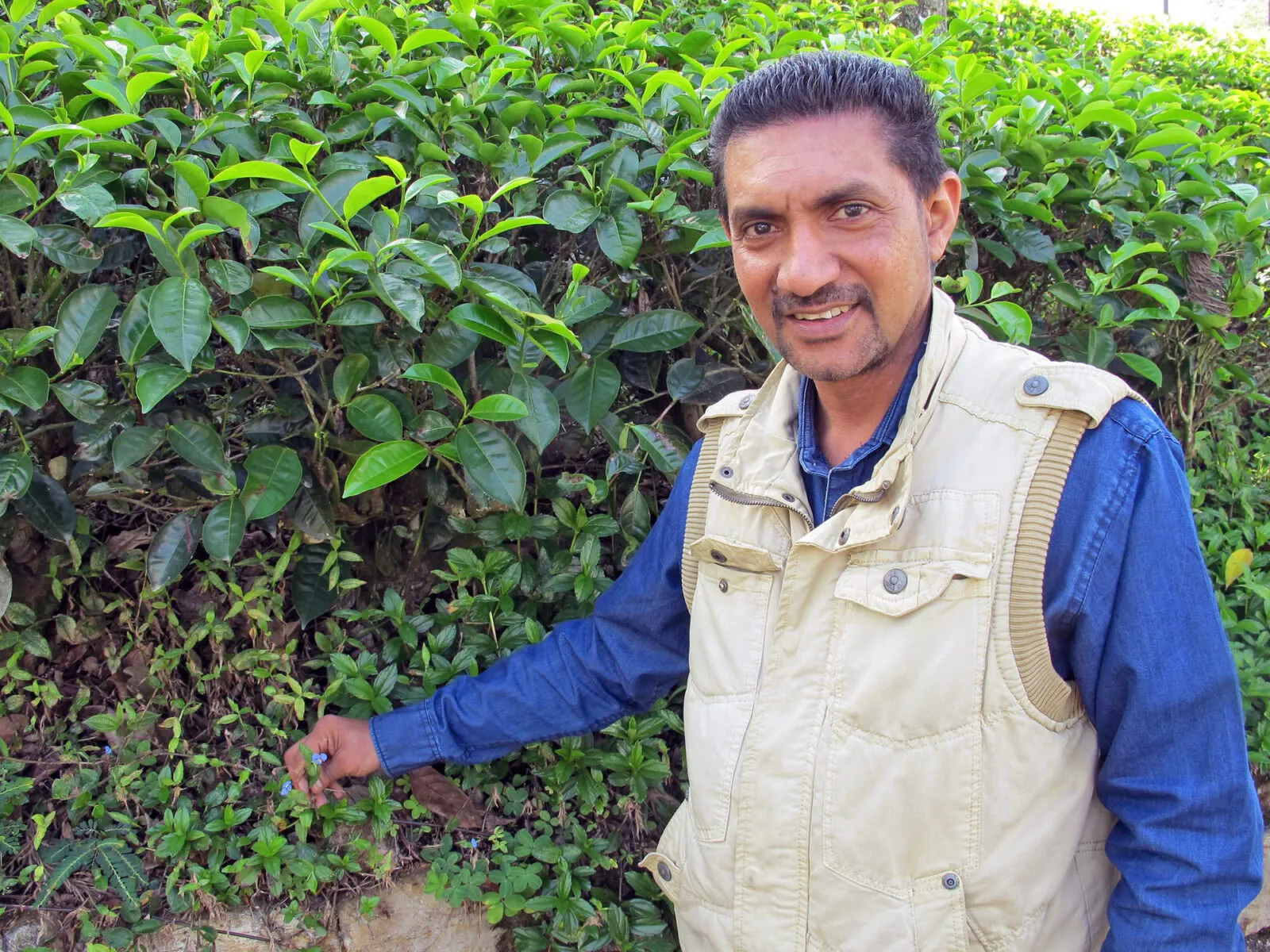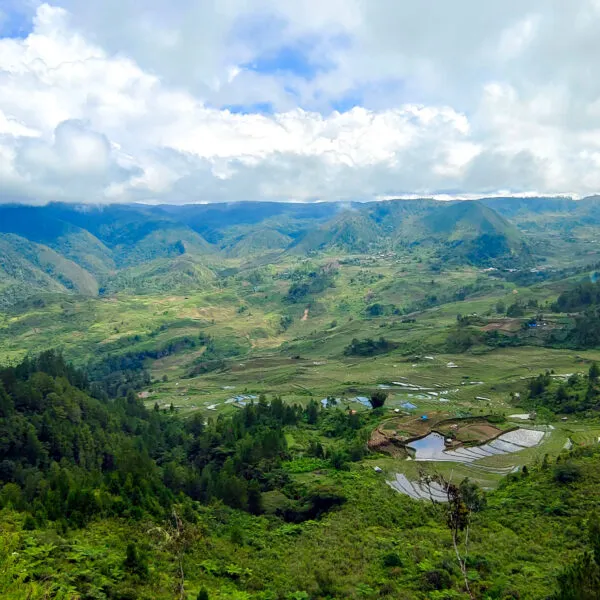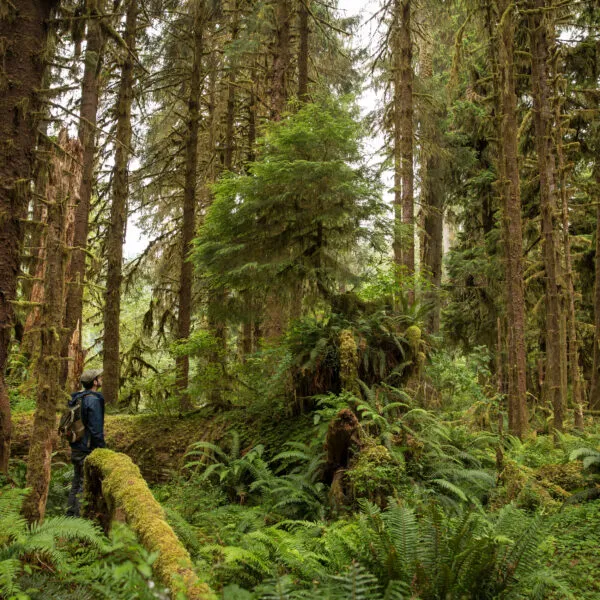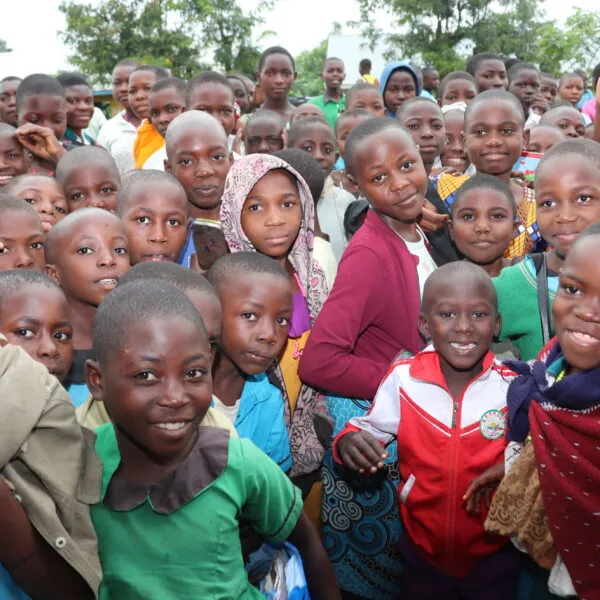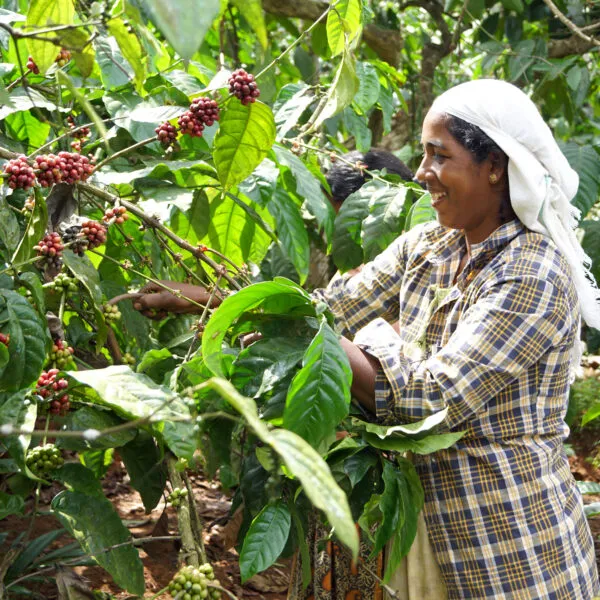In the foothills below Sri Lanka’s famed Peak Wilderness Sanctuary lives an evangelist for herbicide-free integrated pest management—a scientist by the name of Mahendra Peiris who serves as the manager of the Rainforest Alliance Certified Hapugastenne Tea Estate.
When Peiris attended a Rainforest Alliance training workshop on herbicide-free, integrated weed management in 2014, he was thrilled to see our Sri Lankan agricultural trainer teaching farmers the very same methods he’d been experimenting with on his estate. The workshop helped farmers boost the productivity of their land while eliminating the need for chemical fertilizers and herbicides. Using this method, farmers allow beneficial weeds to grow, thereby replenishing nutrients in the soil, while noxious weeds are manually uprooted and composted into organic fertilizer. The end result: healthier, richer soil, thriving tea bushes, and cleaner streams and rivers.
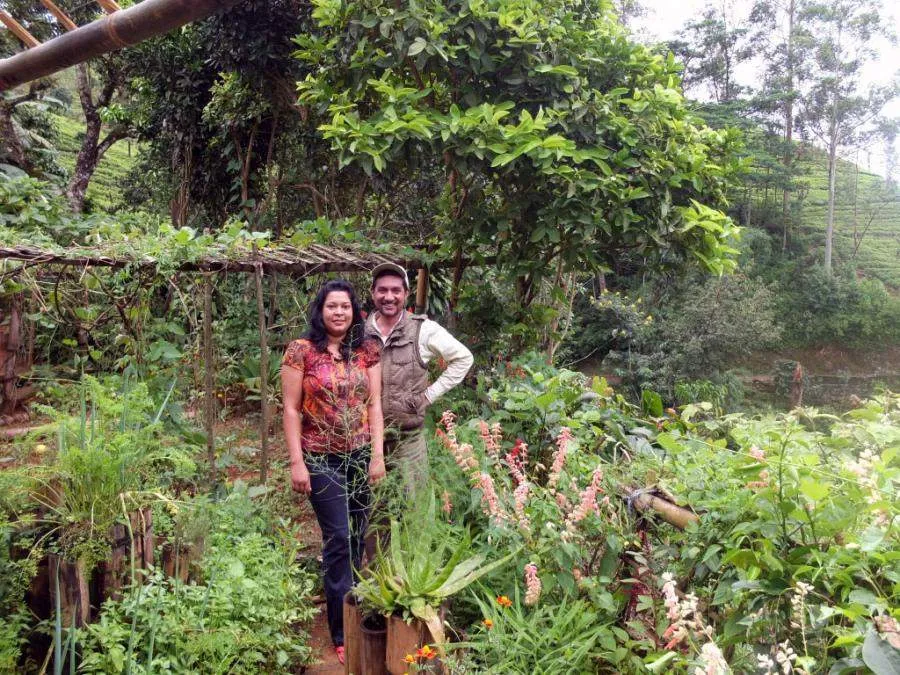
Peiris made a substantial investment in labor in the first year, since manual weeding requires more workers. By year two, Peiris hired a smaller number of workers to eradicate the hard weeds completely; by then the soft weeds were flourishing. By year three, the estate crop yield had increased 20 percent, and costs had dropped since Peiris was no longer purchasing herbicides. Farmers in the region who had been skeptical about the method at first have now become convinced of its merits, thanks in part to Peiris joining forces with our trainer on the ground and offering his tea fields as a learning site. Not least of these is the financial benefit, which reduces the pressure on farmers to cut down forest to expand their growing area.
